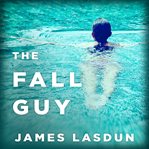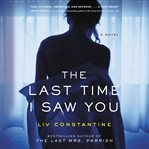Review by New York Times Review
IS THERE ANY excuse for a thriller to be well written? A good sentence and a good thriller exist at cross purposes - the sentence making us pause to think or notice, the thriller dissolving our awareness of anything but its narrative, the genre that most wants to make us forget we're reading. You can find plenty of terrible lines in "The Firm," but try to track down a boring one. There aren't any. The field's current standard-bearer, Lee Child, writes clean, hard and fast. (I once heard at third hand that he aims his prose at a reader of 10 years old, which is one of those things that should be true, whether it is or not.) There's something genuinely admirable about his style: He's prominent on his covers, square-jawed and bomber-jacketed, but once the action starts he vanishes, an invisible and discreet servant to his story, indulging in none of the clever asides or descriptions of weather that are so gratifying to a writer's ego. His books are a little silly, and completely addictive. The newest, NIGHT SCHOOL (Delacorte, $28.99), is the 21st that Child has written about Jack Reacher, a nomadic loner without worldly possessions - he's constantly buying new T-shirts - or a settled home. He's a laureled veteran, fast, strong, smart and enormous, 6-foot-5 and 250 pounds , (Eagle-eyed observers will note that these are not Tom Cruise's dimensions.) Above all he's an industrial weight delivery system for dramatic irony, which is what it's called when the reader has information a character doesn't; the quintessential Reacher scene involves a gang of five or six heavies approaching him with a menacing air. We know they're in trouble way before they do. "Night School" is the third prequel Child has written with Reacher still in the Army. Fresh off a successful mission, he's called into a secret meeting by the office of the national security adviser. A tantalizing scrap of intelligence has come into their possession, a phrase that can be plausibly linked to a terrorist cell: "The American wants a hundred million dollars." Reacher goes to Hamburg to investigate, and for 100 pages or so the book careens forward, drawing the death of a local prostitute and a group of German nationalists into its engaging search. There, however, it stumbles. Child gives away too much, too soon, a rare unforced error for this series, and more significantly Reacher seems strangely out of place in a military investigation. His defining characteristic is his itinerant vigilante solitude, and here, teamed up with elite agents from the C.I.A. and the F.B.I., handling matters with complicated geopolitical implications, he really feels like the character we know only when he takes a few minutes of me-time to rough up those nationalists. Reacher is a fantasy, of course. When he's battling a corrupt private military firm, the terse, forceful prose with which Child describes him serves to confirm Reacher's toughness and credibility. But when he's battling a jihadist group, that same tone seems (as Theodor Adorno observed that such bids for authenticity often do) like little more than a shrewder variety of fakeness, a subtler posturing. "Night School" is dedicated to "the men and women around the world who do this stuff for real." If only they existed. Standing in almost diametric contrast to the Reacher model is THE LONG ROOM (Tin House, paper, $15.95), the third novel by the gifted English writer Francesca Kay. It's the story of a British spy in London in 1981 - everyone is watching the Jeremy Irons "Brideshead Revisited" - and its narrative is halting, occasionally far-fetched and only intermittently engrossing, but its language is brilliant, a poet's language, luminous and watchful. Stephen, the protagonist of "The Long Room," catches an unexpected view of himself in a mirror and sees "a bare, forked animal," a startling and perfect fragment of defamiliarization plucked from Shakespeare. Later there's a blizzard, and Kay records that the snowfall is "untouched but for the tracery of a bird's claw prints." As Stephen leaves the long room where he works for British intelligence one night, and which gives the book its title, we see him "lightly touching each of the eight deserted desks as he goes past," which is just what I would do too. He's an unhappy fellow, Stephen: He expected Oxford to open new doors for him, but instead found that it only showed him the locked ones more closely. At least his boss, Rollo Buckingham (a name that makes him sound, perhaps a little too blatantly, like Catsmeat Potter-Pirbright's best chum from sixth form), has invited him to work on a sensitive internal investigation; the only difficulty is that Stephen has fallen in love with Helen, one of its subjects. "The Long Room" is uncannily reminiscent of "Jill," by Philip Larkin, about a provincial boy who goes up to Oxford with high hopes, only to be overwhelmed by loneliness and longing, a sense that life is something that goes on elsewhere, in sparkling rooms he glimpses from the street. "Who told the long-limbed boys, the Greenwoods and the Bennet-Gilmours of this world, the Buckinghams, that asparagus is eaten with the fingers not a fork?" No nation has produced this kind of aching query with a hundredth of the frequency of England, whose great original sin is class, as America's is slavery. Stephen's ressentiment drives him to more and more desperate choices, less and less realistically, culminating in an absurd and anticlimactic trip across the country. But the grace of Kay's voice is hypnotizing, and there are moments when her empathy for Stephen makes them seem barely divisible. Spies and writers are both paid to notice, after all. If there's a golden mean between Child's crisp technique and Kay's melancholy, lovely one, the English novelist James Lasdun may have found it in his exceptionally entertaining new book, THE FALL GUY (Norton, $25.95). It's a cross of literary fiction, thriller and mystery; as David Shields has said, and as good writers realize quickly, "genre is a minimum-security prison." Maybe the title places it most accurately: Lasdun, after the pathogenic proliferation of Girls in crime fiction - gone ones, good ones, train ones, through glass ones - offers us two guys with enigmatic motives, in restrained competition over a woman to whom one of them is married. Which of them will be the fall guy? Their names are Charlie and Matthew, and they are cousins whose friendship dates to their London school days, though both now live in New York. Charlie is rich and married, Matthew poor and at loose ends, obsessively reading his dead father's copy of Pascal's "Pensées," trying to figure out where things went wrong, and so Charlie and his wife, Chloe, invite Matthew to stay for the summer in the guesthouse of their wooded mountainside retreat. From the start there's a febrile mood to this ad hoc household, languorous poolside mornings, friends coming over to drink a bit too much. Matthew has a secret feeling of closeness with Chloe, not even precisely sexual, which makes her sacred to him, "an idealized composite in whom daughter, sister, cousin, mother, mistress, friend and mystical other half were all miraculously commingled." When he discovers that she's being unfaithful, then, he's bereft. Does he confront her? Charlie? Both of them? There's something reptilian in Lasdun's gaze, a cold-blooded interest in furtiveness, in the lithe selfishness of the genteel. "The Fall Guy" reads like early Ian McEwan or late Patricia Highsmith, and while often novelists who write as finely as he does seem to feel above what Jonathan Franzen once called the "stoop work" of narrative, Lasdun is masterly in his story's construction. His clues never seem like clues until they bind tightly around one of the three leads. This is exactly what a literary thriller should be: intelligent, careful, swift, unsettling. Its author deserves to find more readers on these shores. Pascal, who acts as Greek chorus to "The Fall Guy," said that all of man's misfortune comes from one thing, which is not knowing how to sit quietly in a room , That might also be the motto of Cenzo, an Italian fisherman waiting out the last days of World War II in Martin Cruz Smith's novel THE GIRL FROM VENICE (Simon & Schuster, $27). "I've declared myself an official coward," Cenzo says. "I intend to outlive this war and the next." This seems like a sure sign that a lot of stuff is about to happen to him. It begins when he finds a girl floating in the water. Her name is Giulia, "imperious, with straight hair and a sharp chin," from a rich Venetian family and considerably less dead than Cenzo initially suspects. The Nazis are after her, and very reluctantly the fisherman finds himself conspiring in her concealment. He's been burned before: His dashing brother Giorgio, a famous actor with friends among the Fascists, stole Cenzo's wife, who was immediately killed, denying Cenzo even the right to hate her properly. Soon it becomes clear that to save Giulia, Cenzo may have to reconcile with his brother. "The Girl From Venice" is a classy, lightweight affair, agile in its handling of action, smooth in its writing, thoroughly professional. For a long time I couldn't decide whether it was a passable novel or a very, very bad one. I think, alas, that it's the latter. The problem is its bone-deep complacency. It's a book that has completely internalized the lessons of popular war fiction: Heroes are laconic and world-weary, women are redemptive, only nature is "real," a biplane is always close by to escape on. (There's an article to be written about the incalculable damage Hemingway has wrought on this genre.) Cenzo falls in love with Giulia, and before long she is "transformed into a fierce little sea nymph," words are "insufficient" to describe her. "You have no idea how beautiful you are," Cenzo says. There's more weight of thought in his feelings about fish than about his new lover, but otherwise they seem roughly equivalent: "Fish were mysterious, more a race than a species, and an invitation to another world." Of course women can be redemptive. But every gesture of midcentury Romanticism in "The Girl From Venice" is a received one, repackaged and presented as the most profound wisdom. These books come out fairly often - a panful of warm treacle called "Everyone Brave Is Forgiven," by Chris Cleave, is a recent example - and they make it seem as if popular novelists are just about done actually thinking through World War II, its terrible reality giving way to a comforting set of filmic clichés, sazeracs, desperate train journeys, narrow outwittings. It feels cheap. The Nazis were so cruel individually and in aggregate, so astonishingly malicious, that we owe them our best imaginations. A writer should have to earn them. Anything less is disrespectful to their victims. It says a lot about the present state of play in publishing that even Smith's book, about an Italian fisherman, has the word "girl" in the title, and at first THE VANISHING YEAR (Atria, paper, $16), by Kate Moretti, might appear to be another copycat. Its narrator is a pretty floral designer named Zoe, who's just been swept off her feet by a Wall Street tycoon. He doesn't know the dark secrets of her past, and she doesn't know the dark secrets of his. Send a check to Gillian Flynn. In fact, though, the antecedents of "The Vanishing Year" are far older and in a sense more innocent, less laceratingly modern, than Flynn's magnificent "Gone Girl." It's a tale of lost twins, amnesia, agoraphobia, adoption - most indebted, in other words, to melodramas like "Rebecca" and "Wuthering Heights" and "The Moonstone." (There's even a Mrs. Danvers clone.) The writing is lively and atrocious. Two instances of the word "harrumph" in a six-page span are at least one and probably two too many. "The picture slides from my mind, slippery as wet spaghetti," Zoe exclaims at one point, which is a simile with as much literary merit as wet spaghetti. But there can be a great deal of charm in this kind of looseness - "The Vanishing Year" is intimate, conversational company, and its plot is strong, its closing twists superb. In Zoe's past, we learn, she testified against a dangerous criminal, and before long her new world of fund-raisers and couture is punctured by an attempt on her life. Her husband, who should be her first refuge, grows only more controlling. Instead she turns to a journalist named Cash, who lives in an East Village studio and takes her to his mother's down-at-heels Queens neighborhood; as so often in tales like this one, status anxiety, the sense that rising in the world must inevitably invite punishment, lurks behind the histrionics. The most human and memorable scenes Moretti writes have little to do with these mysteries, however. They're the ones that recall Zoe's childhood adoration of her mother, a loving, fragile person, Sally Bowles in California. The depiction of their relationship seems to come from a different, more tender and less outlandish novel. It would be interesting if Moretti were to write it one day. From certain angles, LIVIA LONE (Thomas & Mercer, $24.95), by Barry Eisler, might seem just as cartoonish as "The Vanishing Year." It's about a Seattle cop named Livia, who knows jujitsu, zips around on a motorcycle and opens the book by murdering a rapist partially for her own sexual enjoyment. But Eisler has rooted her story in a scrupulously researched and harrowing account of child sex trafficking, and this gives Livia's unlikely later adventures credibility and resonance. The resulting hybrid makes for an absolutely first-rate thriller. "Livia Lone" is divided into chapters labeled "Then" and "Now." Those in the past are about Livia and her sister, Nason, whose parents sell them to a gang of Thai traffickers. The sexual assaults begin almost immediately; Livia volunteers herself, to protect her little sister. These sections are hard to read, but never gratuitous, and, like the whole book, feel emotionally true at each beat. "She knew she would die if she stopped eating. The thought was immediately appealing." She forces herself to carry on. Shipped to America, the sisters are separated, and the "Now" sections of Eisler's book revolve around Livia's attempts to track down Nason, as well as the men who initially abused them. These have more of the conventional contours of a thriller, verging at moments on the ridiculous, but even here the novel is careful to grant Livia the full complexity of her awful history, the murderousness, the helplessness, the sorrow and the self-loathing that underlie her adult strength. Eisler is an earnest author, kind of nerdy. He likes detail. Almost every thriller has a lead who's a master of jujitsu, but this one, in some of its finest scenes, actually traces Livia's slow acquisition of the art, the appeal of the power and surprising friendships it brings her. This is a nice change from the norm, and it's emblematic of Eisler's humane and grounded approach to writing a tall tale. His language is clear, unpretentious, a little clunky, a little hammy. Caught up in Livia's journey, you barely notice it's there. CHARLES FINCH is the author of "The Last Enchantments" and other novels. "The Inheritance," the latest installment of his Charles Lenox mystery series, will be published this week.
Copyright (c) The New York Times Company [November 20, 2016]
Review by Booklist Review
Lasdun serves up another complex psychological thriller, this time set in the summer of 2012 in a Woodstock-like community in the Catskills. Despite the appearances of calm at a sumptuous mountaintop retreat, complete with sunken living room, central air, and swimming pool, as the weeks pass and the temperature rises, so do long-simmering resentments and desires. There are both outright deception and subtle self-delusion. Charlie, who has orchestrated a fateful trio, is a successful banker who seems to be holding himself together with Buddha breaths. The butterfly garden-planting Chloe appears to be an ideal wife and mother. Troubled cousin Matthew is earning his keep in self-abnegating kitchen duty. When Wade, a film producer, evens out their number, one of them is murdered, in a scene that explodes amid a festive fireworks celebration. The reader must ultimately decide just who is the actual fall guy. A gripping, often unnerving page-turner perfect for fans of Thomas H. Cook, Ian McEwan, and Joyce Carol Oates.--Murphy, Jane Copyright 2016 Booklist
From Booklist, Copyright (c) American Library Association. Used with permission.
Review by Publisher's Weekly Review
In his new novel of psychological suspense, set in 2012, poet-author Lasdun places Matthew, a young, out-of-work chef, under a literary microscope, catching every disturbing twitch of his increasing discomfort as he spends a long summer at the Catskill Mountain vacation home of his wealthy stockbroker cousin Charlie and Charlie's beautiful wife, Chloe. In return, Matthew agrees to be the couple's live-in chef. He's a former Londoner, feeling adrift, and, in addition to providing him with a consistent British accent, reader Constant catches the character's soft-spoken sense of aimlessness and, even more crucial, his exaggerated sensitivity. Lasdun spins his tale slowly and carefully, increasing Matthew's growing tension by degrees until, eventually, it jumps into the red zone after he discovers Chloe's affair with filmmaker Wade Grollier, a burly extrovert. Constant's presentation of Wade, with his effectively rendered Deep South accent, complements the character's easygoing and amusing nature, while Constant's hard-edged, fast-paced description of events preceding the murder is quite the opposite. Lasdun and Constant make it clear who kills whom, but we're left to decide who's guilty, who's innocent, and who fills the role of the fall guy. A Norton hardcover. (Oct.) © Copyright PWxyz, LLC. All rights reserved.
(c) Copyright PWxyz, LLC. All rights reserved
Review by Library Journal Review
Unemployed chef Matthew Dannecker has been invited to spend the summer with his wealthy cousin Charlie, a Wall Street banker, and his wife, Chloe, at their swanky vacation home in upstate New York. Figuring he'll take the opportunity to reorient his drifting life, Matthew spends his days rounding up delicacies (with his cousin's credit card) to cook for the household each evening, until he begins to suspect that Chloe is having an affair with a local vacationer. Torn between his familial loyalty to Charlie and his unaddressed feelings for Chloe, Matthew begins a covert espionage mission-including a centerpiece scene that is as heart-stopping as anything suspense fiction has produced this year-that will forever shatter any delusions of placidity among the three housemates. The author's taut, penetrating narration burrows deep into Matthew's increasingly cluttered mind, with the class divide between the cousins and a shared history as schoolmates that led to a decade-long fracture as backdrops. -VERDICT Despite an abrupt resolution, -Lasdun's latest (after a memoir, Give Me Everything You Have) is an intelligent, disquieting psychological thriller as potent as an end-of-summer hangover. Highly -recommended [See Prepub Alert, 4/25/16.]-Michael Pucci, South Orange P.L., NJ © Copyright 2016. Library Journals LLC, a wholly owned subsidiary of Media Source, Inc. No redistribution permitted.
(c) Copyright Library Journals LLC, a wholly owned subsidiary of Media Source, Inc. No redistribution permitted.
Review by Kirkus Book Review
Buried resentments and obsessive attractions drive three vacationers way over the edge.When Matthew was a boy in London, his American cousin, Charlie, was sent to live with his family, and they became brothers in all but name. But when Matthews father was disgraced and he himself was expelled from high school for selling drugs, something went wrong between them which has never fully mended. But things are looking up in the summer of 2012, when Charlie invites Matthew to spend the summer with him and wife Chloe at their luxurious New York state vacation home. Since Matthew is down on his luck and could use the money hed make subletting his Brooklyn apartment, and also since he is very, very fond of Chloe, he accepts. He moves into the guesthouse on the property and attempts to earn his keep by hunting down gourmet ingredients and preparing lavish four-star meals. Turns out Charlie is still a boring, self-righteous fat cat and Chloe is as delightful as ever; Matthew is self-aware enough to realize that the mystical kinship he feels with her is basically a fancy way of coveting his cousins wife. But knowing that doesnt make it one iota less dangerous. Lasduns (Give Me Everything You Have, 2014, etc.) controlled, devious storytelling style infuses every tick of the clock with tension. Nothing feels innocent, whether its a summer afternoon (The heat merged with the constant sounds of insects and red-winged blackbirds to form its own throbbing, hypnotic medium) or a pretentious entree (a Catalan seafood dish that matches a firm white fish with a mixture of blood sausage and sea urchin roe, seasoned with chorizo). Fava beans with a nice Chianti, anyone? A nasty piece of work, well done. Copyright Kirkus Reviews, used with permission.
Copyright (c) Kirkus Reviews, used with permission.





